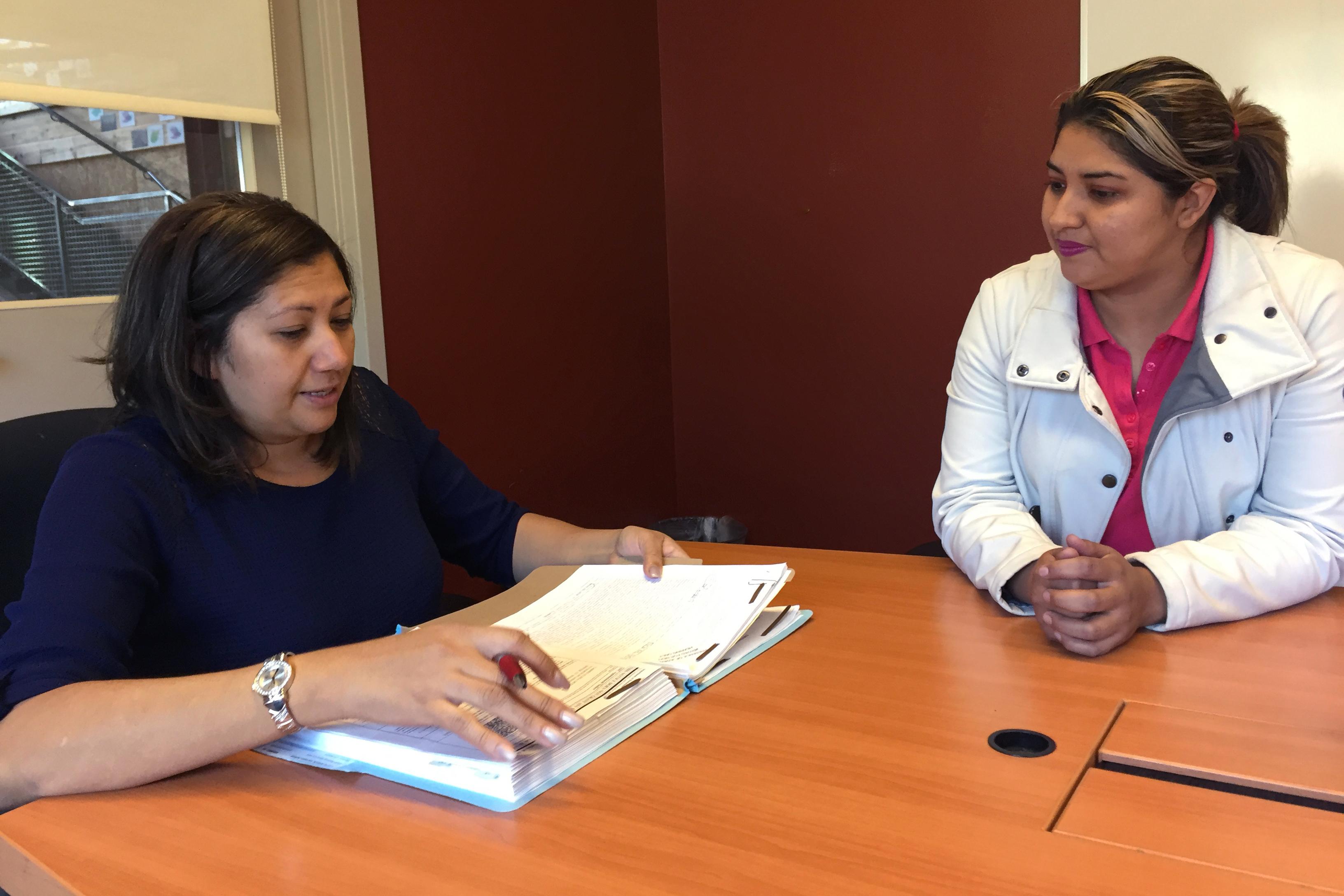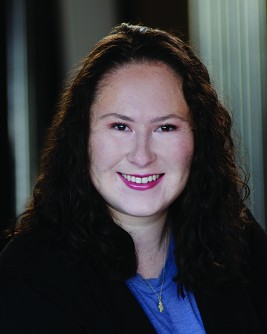

Around 90 percent of detainees at the Immigration and Customs Enforcement detention center in Aurora don’t have a lawyer, the Rocky Mountain Immigrant Advocacy Network estimates. That’s about 900 people.
Denver is trying to improve that statistic. The city officially opened a fund in November for people who can’t afford legal representation in their immigration cases.
The goal is to expand the pro bono capacity in Denver to handle everything from deportation cases to naturalization paperwork.
Carmen Ortiz, an asylum seeker from Honduras, has free representation provided by the Justice and Mercy Legal Aid Center. Without the help of the legal center, Ortiz would have to navigate the increasingly complicated process of immigration on her own.
Asylum seekers with lawyers are five times more likely to be granted protection than people who represent themselves, according to the National Immigration Forum.
The Justice and Mercy Legal Aid Center is getting $95,500 from the Denver Immigrant Legal Services Fund to represent non-detained residents in removal proceedings.
A majority of their current clients are survivors of domestic violence. The grant will allow the center to serve more people who aren’t victims of crimes.
“Everybody in this city has a right to due process,” said Denver City Council Member Paul Lopez, an advocate of the fund. “Especially now, when our Constitution is being torn to shreds with our administration.
Critics say it’s not the city’s job to spend money helping people fight immigration cases. Lopez disagrees.
“We’re finding that a lot of folks who are being detained and who are being questioned actually have qualifiers for them to remain in this country legally,” he said. “The only thing that prevents them from doing it is the lack of being able to afford it.”
Eligible immigrants can qualify for legal status under protections for young immigrants, like DACA, and protections for victims of domestic violence and other crimes, like the Violence Against Women Act or the Victims of Trafficking and Violence Protection Act.
Denver Mayor Michael Hancock set up the legal services fund by executive order in August 2017. Denver’s City Council then followed with the approval of the Denver Public Safety Enforcement Priorities Act to provide residents, both in and out of detention, with legal resources.
The initiative was originally funded with $300,000 from the city and money from the Mayor’s private funds, Vera Institute and Rose Community Foundation. Council committees chose the Denver Foundation to manage, fundraise and administer the fund.
Four grants were given to organizations who could provide direct legal immigration services to people in Denver whose household income is less than 200 percent of the Federal Poverty Level — $50,200 for a family of four.
The foundation officially opened the fund to donations in November and has since received more than $13,000 in contributions.
Rocky Mountain Immigrant Advocacy Network received the largest grant of $200,000. It will be used to hire two new full-time lawyers. RMIAN works with detainees at the ICE detention center in Aurora. They give “Know Your Rights” presentations at the facility and provide direct representation for about 500 immigrants a year.
RMIAN also represents children who, without their help, might have to represent themselves in immigration court.
A Ninth Circuit court upheld a ruling Dec. 10 that said immigrant children do not have the right to an attorney unless they can pay.
“We believe that it's fundamentally wrong to force children to represent themselves in complicated legal proceedings when their very lives may be on the line and where they're going up against a trial attorney from Immigration and Customs Enforcement who's arguing for their deportation,” said Mekela Goehring, RMIAN executive director.
The other two recipients of grants are the University of Denver’s Immigration Law and Policy Clinic and Lutheran Family Services Rocky Mountains.
DU’s new immigration clinic course received $27,000 for two law fellowships.
Leaders at DU’s Sturm College of Law have been trying to organize an immigration clinic for around a decade, according to clinic professor Christopher Lasch. Fall 2018 was its first semester.
The grant will help the clinic accept more students in future semesters.
“The hope is that students who take the Immigration Law and Policy Clinic,” Lasch said, “that many of them will go on to practice and hopefully do pro bono work and increase the capacity to represent Denver's detained immigrant population.”
Students work in teams with faculty support to defend detainees in Aurora. Lasch said they try to take on complicated cases that would be too much of a burden on other pro bono attorneys and nonprofits.
The seven students in the class this fall have gotten five people released from the detention facility.
“In a law school class, you can learn the ideas… you can write the arguments. What you don’t get is knowing what it’s like to go into a detention center, to pass through security, to wait for your client, to look him in the eye and talk to him about what’s happening,” student Allison Crennen-Dunlap said. “That’s the kind of experience you can only get with the clinic.”
Lutheran Family Services got $55,000 to expand their current services. Their legal wing mostly serves refugees, asylees and Cuban Parole recipients. That representation includes help with green card applications, family reunification applications and employment authorizations.
“Our program has normally only been able to serve refugees and asylees,” said Atim Otii, legal services director at Lutheran Family Services Rocky Mountains. “With his money, we will get to serve a larger group of immigrants including folks who missed opportunities to bring their family members, who are now U.S. citizens but were formerly refugees and individuals who have temporary protected status or DACA.”
Even with this money from the fund, there is no way these groups can approach the number of immigrants who need free legal help.
Regardless, Goehring said she is grateful to be a part of this initiative. She hopes one day, everyone facing an immigration case will have a lawyer. She believes the key is government support.
“One of the exciting things in this time of real crisis and tragedy in immigrant communities throughout the United States is that, against that backdrop, there has been an incredible outpouring of support and a recognition of the need for attorneys in this process,” Goehring said.
Council Member Lopez said he will continue to ask the city to support the fund. He said the next step is for ordinary people to donate to the cause.









